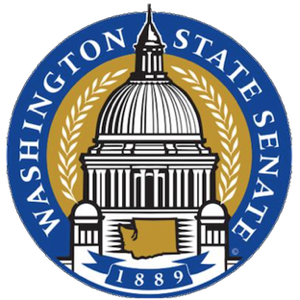The Washington State Senate Law and Justice Committee (WA Senate LAW) considers a variety of subjects relating to civil and criminal law, including issues involving public safety, law enforcement, and sentencing. Civil law topics include commercial law, probate, firearms, eminent domain, Consumer Protection Act remedies and processes. The committee also oversees family law issues such as marriage, child support and adoption.
Public Hearing
- HB 1105 - "Concerning arrest protections for the medical use of cannabis."
